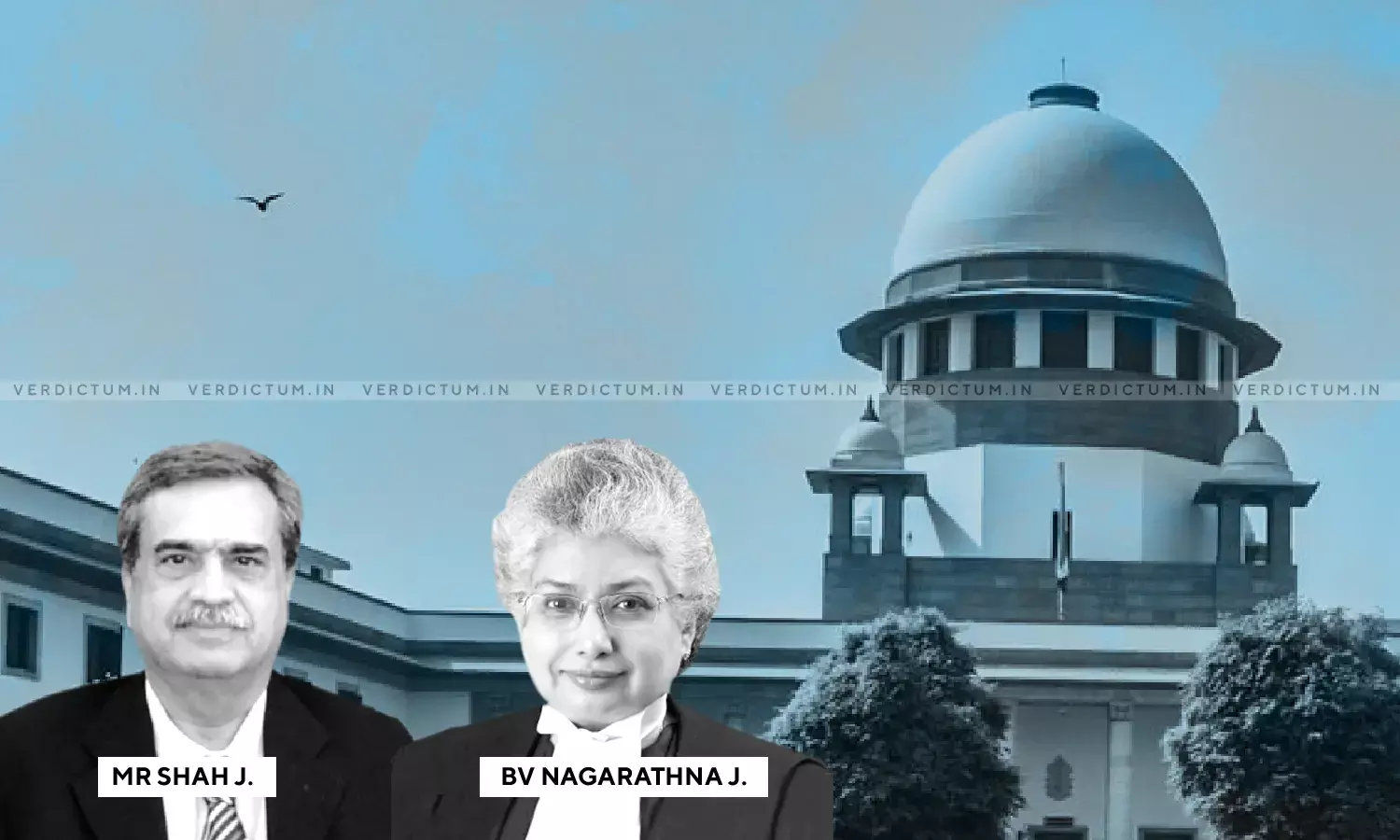High Courts Cannot Interfere With Order Passed By Disciplinary Authority Dismissing Delinquent Officer - SC

A two-judge Bench of Justice M.R Shah and Justice B.V. Nagarathna has held that High Courts cannot interfere with the order passed by the Disciplinary Authority dismissing the Respondent - Delinquent Officer from service.
In this context, the Court opined -
"...we are of the opinion that the High Court has committed a grave error in interfering with the order passed by the disciplinary authority dismissing the respondent – delinquent officer from service. The High Court has erred in reappreciating the entire evidence on record and thereafter interfering with the findings of fact recorded by the Enquiry Officer and accepted by the disciplinary authority."
The Court also held that completed disciplinary proceedings will not be invalidated on the grounds that the delinquent was acquitted by the Criminal Court by giving him a benefit of doubt.
In this case, the Respondent – the delinquent officer, who worked as a deputy manager at the SBI bank forged a letter with the signature of the AGM of the bank and withdrew Rs 10 lacs. On coming to notice an FIR was registered and a complaint was made to the CBI. Thereafter, a departmental enquiry was initiated against the delinquent officer. The appellate authority then imposed on the delinquent officer a penalty of dismissal from services.
The Respondent then filed a petition before the Single Judge of the High Court and by the time the petition was disposed of the respondent attained the age of superannuation. The Single Judge set aside the order of punishment and directed the bank to give all the consequential benefits to the petitioner except the back wages. Consequently, both the bank and the delinquent officer filed separate appeals before the Division Bench of the High Court and were promptly dismissed by the High Court.
Aggrieved, the Appellant approached the Supreme Court.
The Counsel of the Appellant Shri Sanjay Kapoor contended that the High Court committed a grave error with the findings recorded by the Enquiry Officer and setting aside the order of punishment imposed by the appointing authority.
The Supreme Court noted that during their department and inquiry it was clearly proven that the delinquent officer had forged a false letter and committed the alleged fraud.
It also observed that the High Court in the exercise of powers under Articles 226/227 of the Constitution has reappreciated the evidence on record which is otherwise not permissible.
The Supreme Court relied on the judgment in the case of Nandkishore Prasad Vs Sate of Bihar & others where it was held that the High Court is not a Court of Appeal over the decision of authorities holding a department enquiry and that it is not the function of High Court under Article 226 of the constitution of India to reappreciate/review the evidence.
The Bench further opined that High Court has erred in reappreciating the entire evidence on record and thereafter interfering with the findings of fact recorded by the Enquiry Officer and thus called the order passed by High Court to be suffering from "patent illegality."
The Supreme Court also opined that, "standard of proof required in criminal case and that of disciplinary proceedings is different. The fact that the Criminal Court acquitted the respondent by giving him the benefit of doubt will not in anyway render a completed disability proceedings invalid nor affect the validity of the finding of guilt or consequential punishment."
Thus, the Supreme Court allowed the appeal and quashed and set aside the order passed by the High Court and also restored the order passed by the management dismissing the respondent-delinquent Officer on proved charge and misconduct.
Click here to read/download the Judgment

